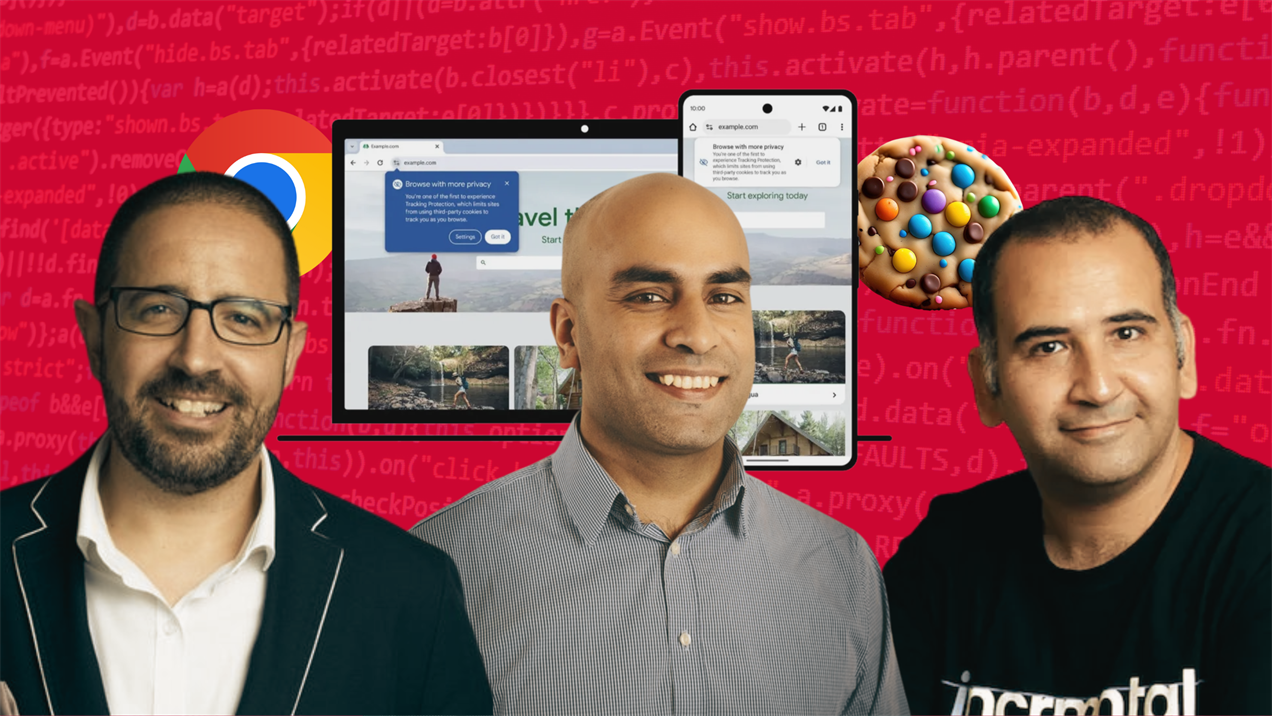Google’s cookie kill off finally begins: 12 marketing experts on "distorting metrics" and quitting the data "obsession"

Today (January 4 2024) Google has commenced its much anticipated move to remove user-level tracking cookies from its popular Chrome browser – a popular way of monitoring user behaviour for serving digital ads.
Google is releasing a new browser feature called Tracking Protection, which, when activated, will cut off a site’s access to third-party cookies.
Those who are part of the test will see the option to “browse with more privacy” when they open Chrome on desktop or Android.
On the advertiser side, Google will give clients the option of new tracking tools without identifying user-level activity.
One such tool is Chrome’s Protected Audience API (formerly known as FLEDGE) that can power remarketing and custom audience solutions, letting advertisers re-engage with site visitors without identifying their behaviour on a personal level.
Another alternative tool offered by Google is Topics API for cookieless behavioural targeting. Topics works within Google’s new Privacy Sandbox mechanism allowing a browser to share information with third parties about a user's interests without having to resort to tracking the sites a user visits.
Google first raised the idea of taking its browser platform cookieless back in 2019, stating that implementation would begin in 2022, which was then pushed back to mid-2023 before undergoing more delays to help the ad industry prepare for the changes.
The rollout beyond the 1% will happen gradually in the second half of this year. If a site in the test fails to function, Chrome will surface the option to disable Tracking Protection and revert to using third-party cookies.
Where will advertiser's budgets go?
Research from PrimeAudience revealed that over 70% of UK marketers feel prepared for the first phase of Google’s cookie deprecation. The company, in collaboration with independent research company Censuswide, surveyed 256 UK marketers in Q4 2023 to understand how far along they are in preparation for the deprecation of third-party cookies, including the tools and data being used to achieve results. Respondents were optimistic, with 91% confident about the future, despite delayed preparations.
When asked what the barriers are in terms of using the tools available, it is clear that education is key. Nearly a third (30%) of respondents stated that they don’t know how to use Protected Audience API, with 32% of marketers reporting the same for Google Topics API.
This statement is true across the board, given a third of UK marketers also admitted they don’t know how to use clean rooms (33%) or Universal IDs (30%) either.
However, when asked which cookieless solutions they plan to use in 2024, UK marketers put contextual targeting on top (34%), followed by Protected Audiences API (32%) and Google Topics API (30%), surpassing Universal IDs (28%).
Pete Wallace, General Manager EMEA at GumGum, said: “ There are certainly going to be grumbles across the ad tech industry when it comes to the Privacy Sandbox rooted in the fear of yet again giving too much control to one player in such a significant area. Email and other first-party data alternatives are rich alternatives that should be utilised and in the short-term, only advertisers who can scale this identifier will be able to benefit. It's inevitable for there to be scrutiny of these forms of identifiers through its application of data down the line.
“We expect savvy advertisers to utilise a variety of ID and targeting solutions, however, it is only those who don't rely on black box or PII that will be there for the long term. We don’t need to exploit personal data to serve relevant advertising, and privacy-forward targeting methods like contextual have seen a huge surge of interest and application as the death of the cookie gets closer and closer.”
“Implementing these solutions can lead to immediate benefits… beyond to mobile in-app and CTV.”
Read more in: Performance Marketing World



